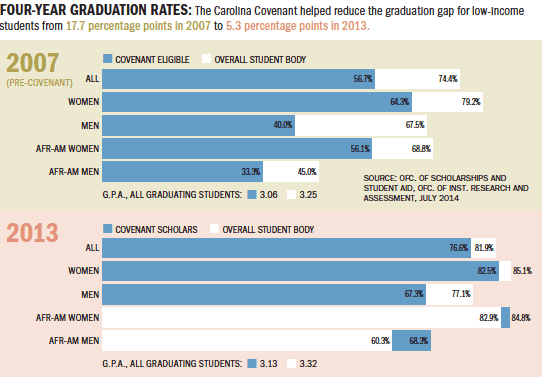- Membership
- Perks and Discounts
- Things To Do
- Resources
- News
- About
- Shop
Related Content
Respectfully Listening and Hearing
March 21, 2023
The Review asked GAA president Doug Dibbert ’70, who is retiring, to choose one “Yours...
Read MoreA Year of Transitions
Feb. 1, 2023
Carolina alumni and friends should remain proud of Carolina’s achievements, resolute about our challenges, saddened...
Read MoreIt’s Time — Thank You
Nov. 11, 2022
Several months ago, then-GAA-Board Chair Dana Simpson ’96 (’00 JD) and I discussed what may...
Read More-
2024
-
2023
-
2022
-
2021
-
2020
-
2019
-
2018
-
2017
-
2016
-
2015
-
2014
-
2013
-
2012
-
2011
-
2010
-
2009
-
2008
-
2007
-
2006
-
2005
-
2004
- Academics and Athletics
- Admissions
- Alumni Profiles
- Alumni Recognition
- Around Town
- Arts
- Books
- Campus Profile
- Campus Safety
- Carolina Alumni Awards
- Carolina Alumni Leadership
- Carolina Alumni Programs and Outreach
- Carolina Alumni Reunions
- Carolina Alumni Review
- Celebrations
- Championships
- College and Costs
- Commencement
- Coronavirus
- Discovery
- Extracurricular
- Faculty
- Faculty Awards
- For the People
- Go Heels
- Greek Life
- Hark the Sounds
- Higher Education
- Homecoming
- In Class
- In Memoriam
- Innovation and Technology
- Issues
- Object Lesson
- On View
- Our Treescape
- Philanthropy
- Podcast
- Public Service
- Race and Reckoning
- Research
- Sexual Assault
- Silent Sam
- Sports
- Structures
- Student Achievement
- Students
- Timelines
- Tuition and Financial Aid
- UNC Libraries
- UNC’s History
- Undergraduate Spotlight
- University Achievements
- University Awards
- University Budget Issues
- University Development
- University Leadership
- University News
- University Rankings
- What We Do
- Who We Are
- Young Alumni
- Yours at Carolina
‘If You Have the Will, We Will Make the Way’
Posted on Sept. 15, 2014Quoting former N.C. Gov. Terry Sanford ’39, then-UNC Chancellor James Moeser announced the creation of the Carolina Covenant in 2004. Today, the Covenant remains Carolina’s signature program evidencing our continuing commitment to access and affordability. More than 4,600 bright, hard-working students from low-income families have been Covenant Scholars. Each earned admission to Carolina before Shirley Ort, associate provost and director of UNC’s Office of Scholarships and Student Aid and conceiver of the Covenant, and her colleagues determined they were eligible to become Covenant Scholars.
 While the Covenant is well-known for ensuring that scholars can graduate debt-free, it is more than a no-loan package of grants and scholarships to accompany work-study. Covenant Scholars have access to faculty and staff mentors, special workshops, social events and a dedicated staff at the Student Aid Office to help scholars make the most of their UNC experience. The Carolina Covenant has inspired 80 institutions to launch similar programs.
While the Covenant is well-known for ensuring that scholars can graduate debt-free, it is more than a no-loan package of grants and scholarships to accompany work-study. Covenant Scholars have access to faculty and staff mentors, special workshops, social events and a dedicated staff at the Student Aid Office to help scholars make the most of their UNC experience. The Carolina Covenant has inspired 80 institutions to launch similar programs.
Marquis Peacock ’13 grew up in Goldsboro, and he didn’t think his family could afford for him to attend any college. However, he qualified for the Covenant and enrolled at Carolina. Initially, he thought he’d major in exercise and sports medicine, but a “fascinating” first-semester course in religious studies prompted him to switch his major. He earned a competitive study abroad scholarship to study in Singapore and India, where he witnessed the contrast between richness and poverty. He became interested in medicine as a way to bridge the divides he saw. Working hard and graduating a semester early, he entered UNC’s School of Medicine this fall.
As the accompanying chart confirms, his story is not unique. Covenant Scholars, through their hard work, have been remarkably successful.
Writing in the Alumni Review in February 1932, then-Dean of Students Francis F. Bradshaw urged the establishment of an Emergency Student Loan Fund, noting that without it “over five hundred worthwhile students in The University of North Carolina will be forced out of school back upon ‘bankrupt homes and jobless towns.’ ” Bradshaw reminded readers that such a loan fund was similar to the Deems Fund established in 1879 that made loans to 1,835 individuals, including 36 ministers, 208 lawyers, 280 teachers, 33 journalists, 113 doctors, 23 bankers, 17 manufacturers, 20 chemists and 47 engineers.
Carolina continues to admit undergraduates without regard to their ability to pay, and it meets 100 percent of the demonstrated need of admitted students who qualify for aid. Median family income of those receiving need-based financial aid is roughly $60,000. Of last year’s first-year students, 13 percent were Covenant Scholars and another 30 percent qualified for need-based financial aid. In real dollars, student debt per graduating Carolina undergraduate who borrowed has remained the same for 15 years at an average of $17,000.
Carolina has a long, proud history of reaching out to and supporting bright, hard-working young students whose families’ financial circumstances make Carolina appear beyond their means.
Yours at Carolina,

Douglas S. Dibbert ’70
© 2024 Carolina Alumni

